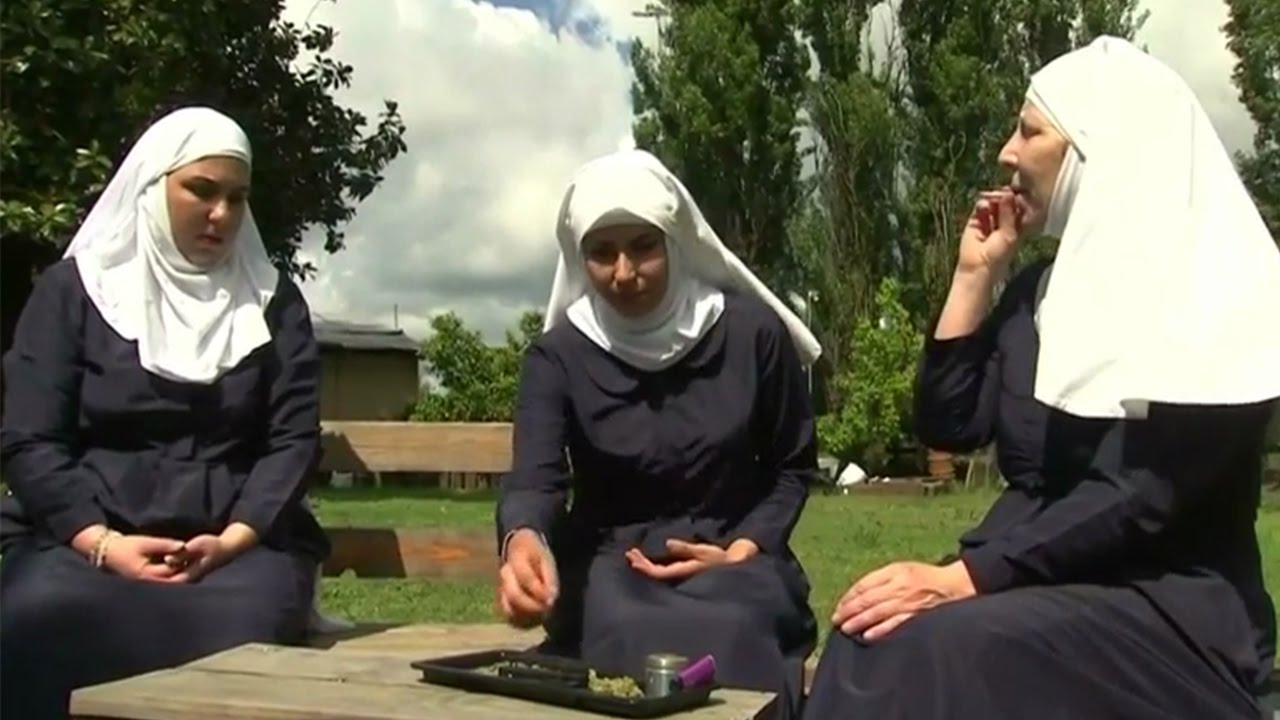Image via
California’s cannabis regulations are too restrictive, even for the Sisters of the Valley, the self-declared anarchist nuns who get by selling CBD products. In a recent BBC profile, a spokesperson for the group said that they are currently making half as much as they did before the pandemic — and they think California’s regulatory system is to blame.
The sisters are operating outside of the law. Their farm is in Merced County, where all commercial cannabis activity is against local regulation, as it has been since the Sisters’ non-profit cannabis collective got its start way back in 2015.
“I chose an industry that is messed up,” the order’s leader Sister Kate, who also goes by Christine Meeusen, told the BBC. “It’s going to probably be messed up and I’m probably going to have to do a lot of dancing and sidestepping.”
The order says that before the COVID-19 pandemic, they were pulling down a $1.2 million gross per year. For unidentified reasons, though, the dark years of masking and sanitizing seriously cut into their profits.
Still, they refuse to sell through dispensaries. Well, that’s because they’re not licensed — again, because they’re not willing to be a part of a Californian legal system they find to be flawed.
The Sisters of the Valley currently grow some 60 cannabis plants outside of a Merced County family home. Their group was documented — including some scenes of nuns wielding firearms to ward off would-be cannabis thieves — in the sensational 2019 film detailing the story of their order, Breaking Habits. The lifestyle is even spreading. The Sisters have inspired a chapter in Mexico that follows their lunar cycle-coordinate lifestyle and passion for cannabis education.
Regardless of what the cannabis nuns say, the state’s politicians seem to be working on making things better for small cannabis entrepreneurs in some senses, however.
In July of this year, California Governor Gavin Newsome actually approved a bill that eliminated the state’s cannabis cultivation tax. However, the move came after regulators raised the same tax by 4.5 percent earlier this year.
Those moves were made in the face of widespread discontent in the state’s weed industry. Last winter, some weed entrepreneurs even went so far as to say that they were ready for a tax revolt if their businesses’ contributions to the government weren’t lowered.
Subsequent studies suggested that California’s legal weed industry stood a better chance of competing against unlicensed supply chains that are reportedly worth some $8 billion in the state if it lowered taxes. In fact, one estimate by the Reason Foundation stated that the state could more than double monthly tax revenues if the cultivation tax was done away with.
What there’s no debate over is that California cannabis continues to face challenges. A recent report by the Los Angeles Times found that illegal grows in the state are on the rise, somewhat ironically, since Proposition 64 legalized recreational weed in the state. And not all those growers are as innocuous as the CBD-cultivating nuns. The article described “heavily armed camps,” were labor exploitation is rife — and occasionally lethal for the workers involved.











